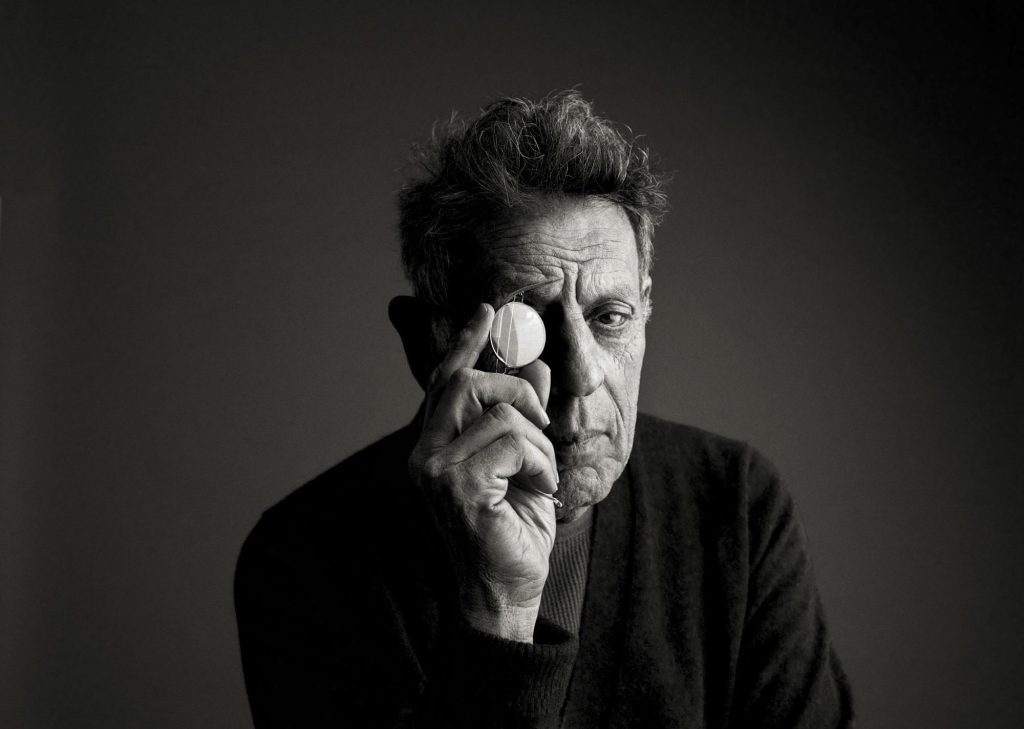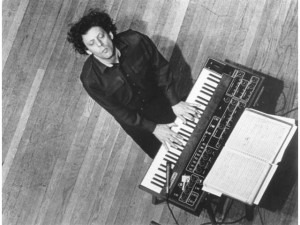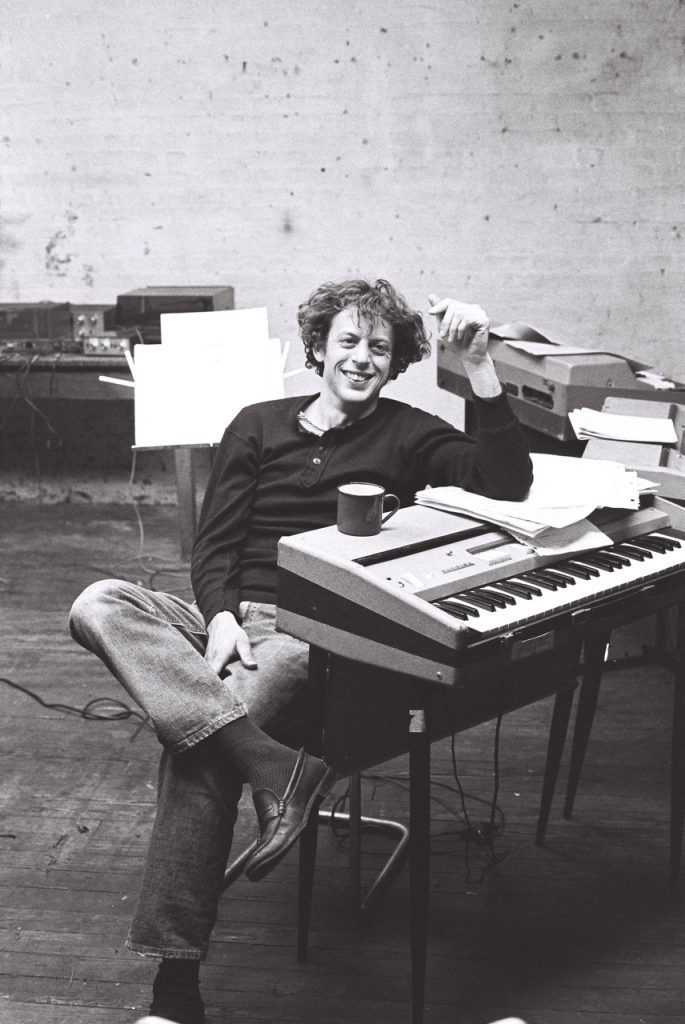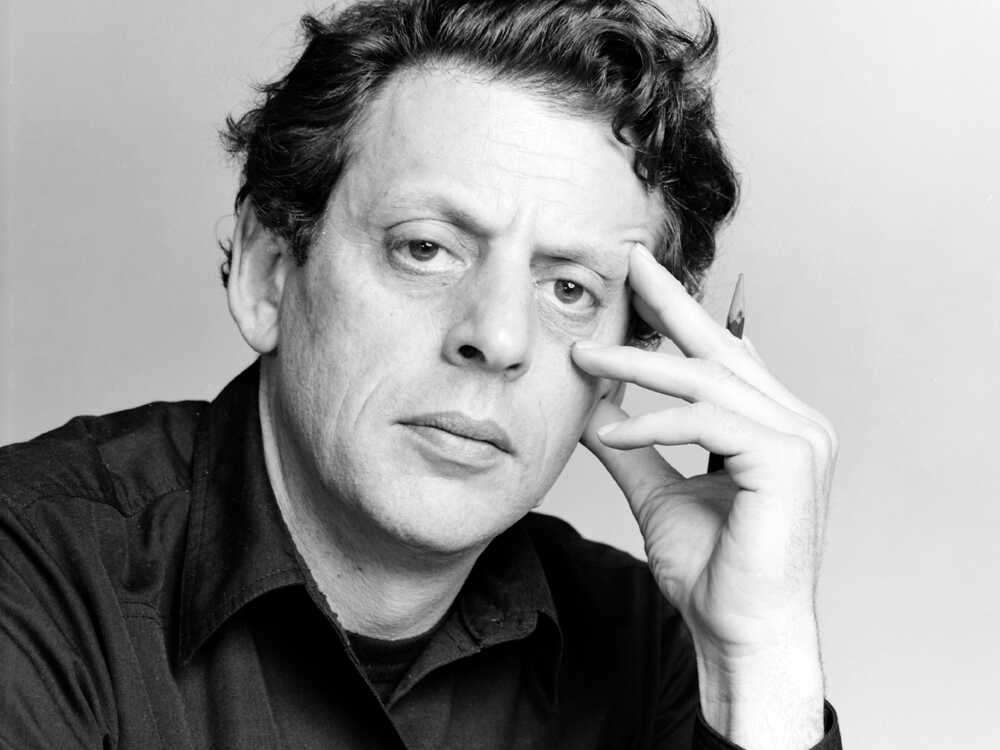
THIS WEEK IN PIANO HISTORY, we celebrate the birth of American composer Philip Glass, who was born on January 31, 1937. Known for his unique approach to minimalist style, Glass’ award-winning compositions continue to inspire audiences worldwide.
Born in Baltimore, Maryland, Glass began studying the violin and flute in his childhood, later becoming intrigued by composition as a teenager. He enrolled at the University of Chicago where he received a BA in Liberal Arts in 1956 before taking up composition studies at Juilliard. Among his important early influences were Vincent Persichetti, Darius Milhaud, and even Nadia Boulanger. Throughout the 1960s, Glass’ minimalist style developed and was influenced by his study of Indian traditional music.1 With the establishment of his own ensemble—The Philip Glass Ensemble—he was able to ensure the exclusive performance rights of his music and thus control its dissemination to the public.2 Glass has received a number of awards for his concert and film music including a National Medal of Arts and recognition as a Kennedy Center Honoree.



Glass has written music for every type of classical genre including opera, symphonies, concerti, sonatas, and etudes. He has composed more than a dozen operas including the notable Einstein on the Beach and Akhnaten, which tells the story of an Egyptian pharaoh of the same name. He continues to write symphonies, with Symphony No. 13 written in honor of Canadian-American journalist Peter Jennings being premiered in March 2022. Additionally, Glass composed film scores to dozens of movies and TV shows including The Truman Show, for which he won a Golden Globe for Best Original Score in 1998.
Among his most popular piano works are his three piano concerti and his two volumes of Etudes. His piano works are notable for their repetitive structures, oscillating accompaniment patterns, and introspective qualities. In his Etude No. 5, performed here by pianist Víkingur Ólafsson, Glass creates a long arc out a somber piano accompaniment pattern which later accompanies a melody played at first in octaves.
Glass’s Piano Concerto No. 2: After Lewis and Clark musically conveys the narrative of Lewis and Clark’s famous journey throughout the American West. The piece, heard here performed by pianist Paul Barnes and the UNL Symphony Orchestra, is in three movements and includes a solo performed on a Native American flute in the second movement titled “Sacagawea.”
In describing his own style, Glass states: “I’ve been called a minimalist composer for more than 30 years, and while I’ve never really agreed with the description, I’ve gotten used to it … but what I really am—and increasingly so—is a universalist composer. I’m interested in all kinds of music, and sooner or later most of those musics find their way into my own compositions.”3
Interested in ways you can teach contemporary music techniques to your students? Check out this article by Lynn Worcester Jones in which she explains her teaching tips using the music of Alexina Louie.

Sources
- Edward Strickland and Mark Alburger, “Glass, Philip,” Grove Music Online, 16 Oct. 2013 (Accessed 16 Dec. 2022), oxfordmusiconline-com.uc.idm.oclc.org/grovemusic/view/10.1093/gmo/9781561592630.001.0001/omo-9781561592630-e-1002252917.
- Ibid.
- Tim Page, “Nothing Less,” The Washington Post, January 16, 2005, washingtonpost.com/archive/lifestyle/style/2005/01/16/nothing-less/2668c73f-bc71-43ac-b237-dd30dc545747/ (accessed December 16, 2022).
Evans, Tristian. “Glass, Philip.” Grove Music Online. 26 Mar. 2018; Accessed 16 Dec. 2022. oxfordmusiconline-com.uc.idm.oclc.org/grovemusic/view/10.1093/gmo/9781561592630.001.0001/omo-9781561592630-e-3000000124.
Page, Tim. “Nothing Less.” The Washington Post. January 16, 2005. washingtonpost.com/archive/lifestyle/style/2005/01/16/nothing-less/2668c73f-bc71-43ac-b237-dd30dc545747/ (accessed December 16, 2022).
Strickland, Edward, and Mark Alburger. “Glass, Philip.” Grove Music Online. 16 Oct. 2013; Accessed 16 Dec. 2022. oxfordmusiconline-com.uc.idm.oclc.org/grovemusic/view/10.1093/gmo/9781561592630.001.0001/omo-9781561592630-e-1002252917.